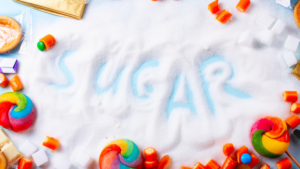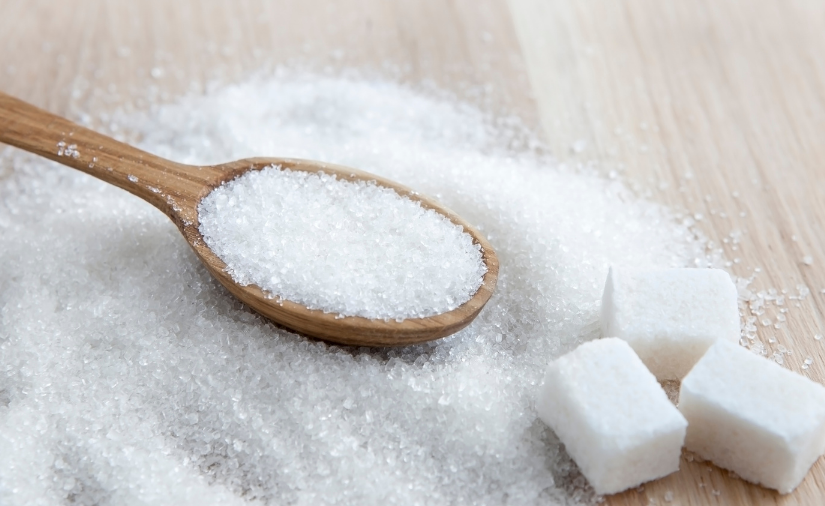By: Dr. Elizabeth Eggert
‘Tis the season for sweet treats.
The period from Halloween through New Year’s Eve is a national sugar-fest, starting with trick-or-treat candy, ramping up to a pie bonanza on Thanksgiving, and then embarking on a whole month packed with candy and baked goods at the office, at parties, and exchanged as holiday gifts.
Is Sugar the New Smoking?
 While we don’t expect many people to give up sugar entirely, we do want to urge moderation. Some folks are calling sugar “the new smoking,” as it does have negative effects on our health, from dental cavities to weight gain to inflammation.
While we don’t expect many people to give up sugar entirely, we do want to urge moderation. Some folks are calling sugar “the new smoking,” as it does have negative effects on our health, from dental cavities to weight gain to inflammation.
Here’s how sugar promotes cavities. It’s not actually the sugar itself that corrodes tooth enamel. Actually, the sugar feeds the harmful bacteria in the mouth that make up plaque. When these bacteria eat sugar, they generate acids that destroy tooth enamel and can then get into deeper layers of the tooth. This results in cavities and tooth decay, and can ultimately contribute to tooth loss.
Choose Recipes with Less Sugar
One way to pursue moderation in sugar is to change your cooking habits and seek out new recipes that deliver less sugar.
Experiment with your own recipes. When baking, try reducing the sugar and see how you like it. Sugar does play an important role in the texture of baked goods, but in many cases you can cut the sugar by a quarter cup or a half cup and still have an excellent result. Foods that don’t depend on sugar for structure are even better for experimenting, such as ice cream, baked custards, pumpkin pie, and similar treats.
If you don’t have time for playing “test kitchen” at home, seek out recipes that use natural alternative sweeteners. If those sweeteners are maple syrup, agave or honey, those ingredients are often sweeter than sugar, so you can reduce the amount in your recipe. Those ingredients also have the benefit of having some nutritional content, in contrast to plain white sugar.
Any reduction in your sugar consumption has a health benefit from both a dental and an overall perspective. Eating less sugar keeps your teeth healthier, stabilizes your energy levels, improves your heart health and more. You don’t need to totally eliminate sugar from your diet to benefit from reducing your consumption.
Keep Brushing and Flossing!
 Of course, reducing sugar doesn’t reduce your obligation to brush and floss. Keep up your brushing and flossing routine even if you start eating the cleanest diet around, and make regular recare appointments with Dr. Elizabeth or Dr. Jeff for routine exams and professional cleanings.
Of course, reducing sugar doesn’t reduce your obligation to brush and floss. Keep up your brushing and flossing routine even if you start eating the cleanest diet around, and make regular recare appointments with Dr. Elizabeth or Dr. Jeff for routine exams and professional cleanings.

